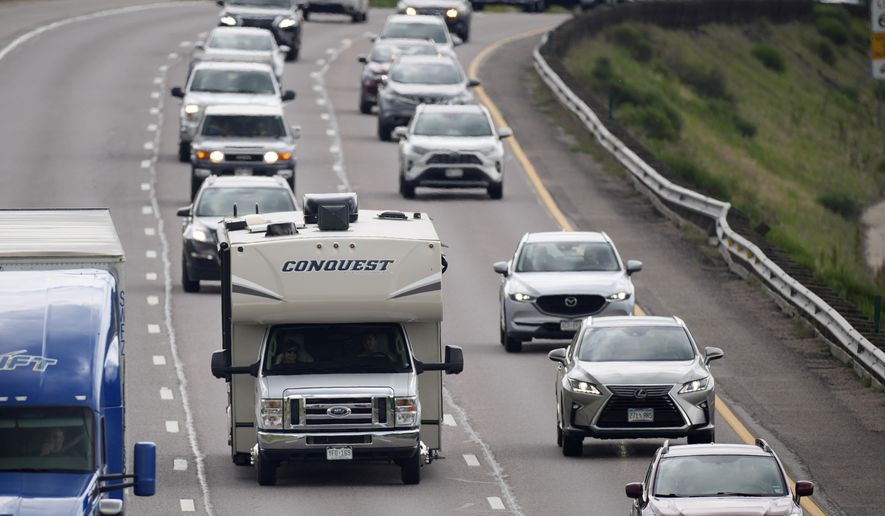The White House’s $1.2 trillion infrastructure package includes a pilot program for a national mile-driven tax, contradicting President Biden’s previous dismissal of the policy.
Tucked within the 2,702-page infrastructure bill is obscure language requiring the Department of Transportation to test the feasibility of taxing drivers for the number of miles they travel.
The tax would be broad enough to target any “passenger motor vehicles,” including light and medium-to-heavy duty trucks.”
The bill also requires Treasury Secretary Janet Yellen and Transportation Secretary Pete Buttigieg (or their successors) to report to Congress about the findings of the program within three years of its creation.
Those findings, the bill’s authors say, can then be used by federal lawmakers to assess whether such a tax should be implemented to fund improvements on roads and highways.
“The objectives of the pilot program are to test the design, acceptance, implementation, and financial sustainability of a national motor vehicle per-mile user fee, to address the need for additional revenue for surface transportation infrastructure and a national motor vehicle per-mile user fee,” the bill reads.
Energy experts, however, say a tax on the number of miles that individuals drive is regressive and unfairly targets rural and suburban residents.
“Drivers currently pay a gas tax that is supposed to pay for road maintenance, and all drivers pay tolls on toll roads for such maintenance,” said Steve Milloy, a former member of the Trump administration’s transition team for the Environmental Protection Agency.
“An additional by-the-mile tax will penalize suburban and rural drivers because of where they live,” Mr. Milloy said.
Mr. Milloy added that the move was not surprising given that environmental advocates have long favored public transit over individual car ownership.
“The left’s climate agenda seeks to force Americans to rely on mass transit in urban areas, which is evident by their efforts to make it more burdensome to own a car,” he said.
Mr. Buttigieg initially floated the idea of a mileage tax on drivers earlier this year during a trip to Pennsylvania.
“I think that shows a lot of promise,” Mr. Buttigieg said at the time. “If we believe in that so-called user-pays principle, the idea that part of how we pay for roads is you pay based on how much you drive … a so-called vehicle mile traveled tax or a mileage tax, whatever you want to call it, could be the way to do it.”
The comments stirred controversy, especially among Republicans and suburbanites, forcing the White House to repudiate the idea.
Mr. Biden stuck to the promise even opposing the notion of funding infrastructure developments through “user fees” during his early talks with Republicans on the topic.
The idea of a mileage tax, though, seems to now be on the table in the $1.2 trillion infrastructure deal Mr. Biden negotiated with a bipartisan group of 10 senators.
The White House did not return requests for comment on this article.
White House Press Secretary Jennifer Psaki is on record, however, as saying that Mr. Biden supports the deal.
James Taylor, the president of conservative-leaning Heartland Institute, said a national mileage tax would also break Mr. Biden’s promise of not raising taxes above anyone making less than $400,000.
He added that such a tax would disproportionately affect the very working-class rural and suburban residents that Mr. Biden has attempted to woo back into the Democratic Party.
“The Biden administration’s agenda to tax Americans by the mile is a terrible idea that will disproportionately impact rural Americans while giving rich urban dwellers a free ride,” said Mr. Taylor. “The miles-driven tax is nothing short of a stealth mechanism for a major tax increase relative to current taxation and will most severely affect low-income households.”
• Haris Alic can be reached at halic@washingtontimes.com.




Please read our comment policy before commenting.